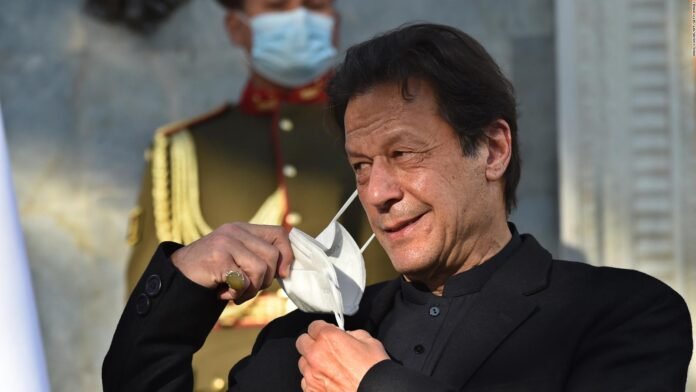Former Pakistani Prime Minister Imran Khan has sent shockwaves through the region with his recent warning about India’s alleged involvement in clandestine operations, including assassinations, within Pakistan’s borders. Khan’s stark remarks shed light on the escalating tensions between the two nuclear-armed neighbors and underscore the precarious nature of their relationship.
In a statement that reverberated across diplomatic circles, Imran Khan raised serious concerns about India’s purported activities on Pakistani soil. The former prime minister, known for his candid and outspoken demeanor, did not mince words as he accused India of orchestrating assassinations as part of its covert operations strategy. Khan’s warning comes at a time of heightened tensions between India and Pakistan, with both countries locked in a long-standing conflict over the disputed region of Kashmir and facing periodic flare-ups along their volatile border.
The allegations leveled by Imran Khan shine a spotlight on the shadowy world of espionage and covert operations that often lurk beneath the surface of international relations. While such activities are not uncommon among rival nations, the gravity of Khan’s claims underscores the potential for escalation and destabilization in an already volatile region.
India has vehemently denied Imran Khan’s allegations, dismissing them as baseless and inflammatory. Indian officials have reiterated their commitment to upholding international norms and respecting the sovereignty of neighboring countries. However, the history of animosity and mistrust between India and Pakistan lends credence to Khan’s warnings, raising questions about the true extent of India’s involvement in covert activities within Pakistan.
The strained relationship between India and Pakistan is rooted in a complex web of historical grievances, territorial disputes, and competing national narratives. Since gaining independence from British colonial rule in 1947, the two countries have fought multiple wars and engaged in numerous skirmishes, with the Kashmir issue serving as a perennial flashpoint. Despite occasional attempts at dialogue and reconciliation, deep-seated animosities and security concerns continue to define their relationship.
Imran Khan’s warning comes against the backdrop of a turbulent period in Pakistan’s domestic politics. Khan’s tenure as prime minister was marked by political turmoil, economic challenges, and strained relations with the military establishment. His ouster from power in a no-confidence vote earlier this year further exacerbated the country’s political instability and raised concerns about the future trajectory of Pakistani politics.
The timing of Khan’s warning raises questions about his motives and intentions. Some observers have interpreted his remarks as an attempt to deflect attention from his own political woes and rally support among the Pakistani populace by invoking nationalist sentiments. Others see Khan’s warning as a genuine expression of concern about the security implications of India’s alleged covert activities.
Regardless of the motivations behind Khan’s warning, the allegations he has raised demand careful consideration and investigation. The prospect of foreign powers engaging in covert operations within Pakistan’s borders poses significant challenges to the country’s security and stability. It also underscores the urgent need for robust counterintelligence measures and diplomatic engagement to prevent further escalation and mitigate the risk of conflict.
In response to Imran Khan’s allegations, Pakistani officials have called for international scrutiny and condemnation of India’s alleged actions. They have urged the international community to take note of the situation and hold India accountable for any violations of Pakistan’s sovereignty and territorial integrity. However, given the complexities of the India-Pakistan relationship and the broader geopolitical dynamics at play, finding a resolution to these issues remains a daunting task.
As tensions simmer and rhetoric escalates, the onus is on both India and Pakistan to exercise restraint and pursue dialogue as the preferred means of resolving their differences. The stakes could not be higher, with the specter of conflict looming large over the region. Imran Khan’s warning serves as a stark reminder of the fragility of peace in South Asia and the urgent need for concerted efforts to defuse tensions and promote stability in the region.

